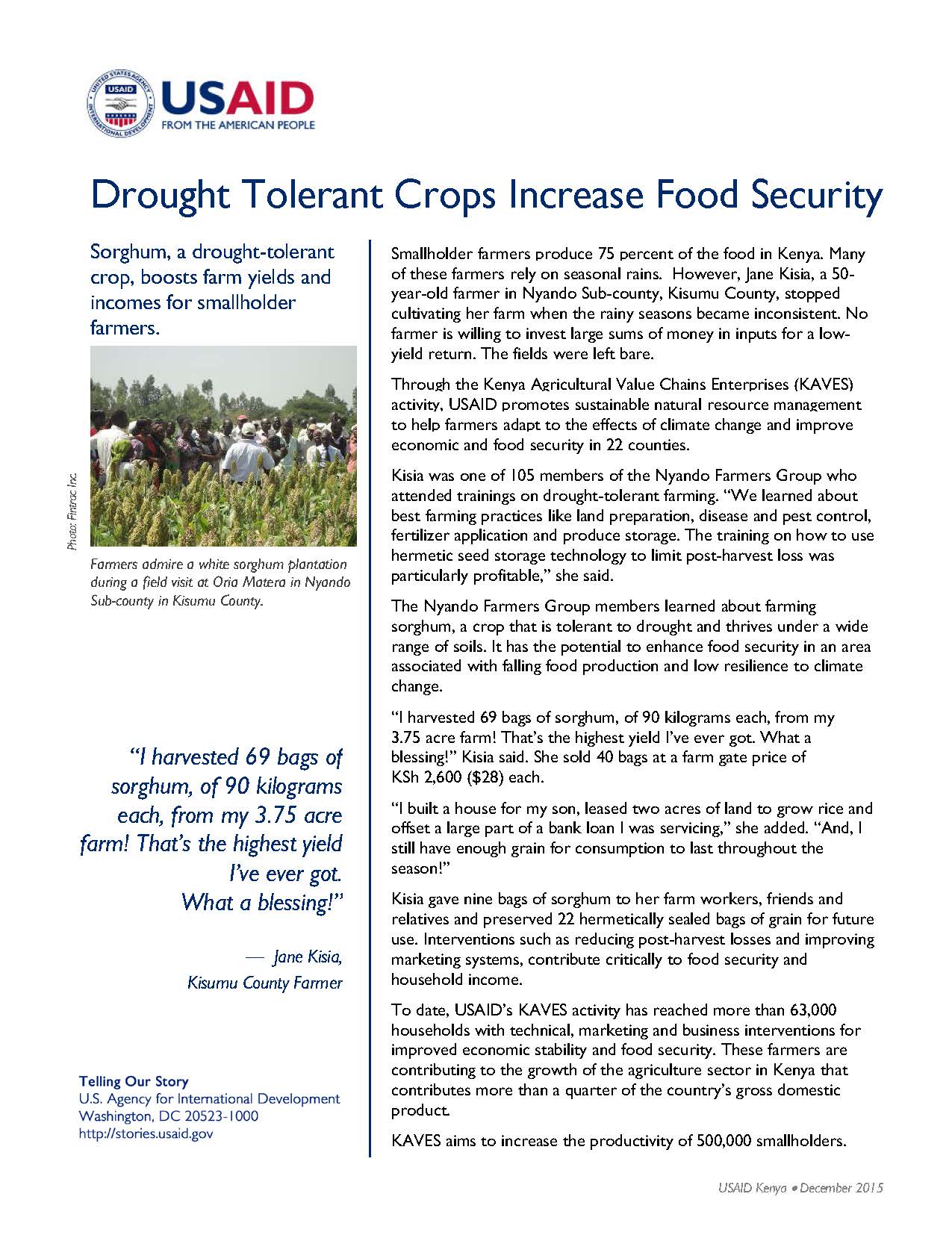Home » Drought Tolerant Crops Increase Food Security
Smallholder farmers produce 75 percent of the food in Kenya. Many of these farmers rely on seasonal rains. However, Jane Kisia, a 50-year-old farmer in Nyando Sub-county, Kisumu County, stopped cultivating her farm when the rainy seasons became inconsistent. No farmer is willing to invest large sums of money in inputs for a low-yield return. The fields were left bare.
Through the Kenya Agricultural Value Chains Enterprises (KAVES) activity, USAID promotes sustainable natural resource management to help farmers adapt to the effects of climate change and improve economic and food security in 22 counties.
Kisia was one of 105 members of the Nyando Farmers Group who attended trainings on drought-tolerant farming. “We learned about best farming practices like land preparation, disease and pest control, fertilizer application and produce storage. The training on how to use hermetic seed storage technology to limit post-harvest loss was particularly profitable,” she said.
The Nyando Farmers Group members learned about farming sorghum, a crop that is tolerant to drought and thrives under a wide range of soils. It has the potential to enhance food security in an area associated with falling food production and low resilience to climate change.
“I harvested 69 bags of sorghum, of 90 kilograms each, from my 3.75 acre farm! That’s the highest yield I’ve ever got. What a blessing!” Kisia said. She sold 40 bags at a farm gate price of KSh 2,600 ($28) each.
“I built a house for my son, leased two acres of land to grow rice and offset a large part of a bank loan I was servicing,” she added. “And, I still have enough grain for consumption to last throughout the season!”
Kisia gave nine bags of sorghum to her farm workers, friends and relatives and preserved 22 hermetically sealed bags of grain for future use. Interventions such as reducing post-harvest losses and improving marketing systems, contribute critically to food security and household income.
To date, USAID’s KAVES activity has reached more than 63,000 households with technical, marketing and business interventions for improved economic stability and food security. These farmers are contributing to the growth of the agriculture sector in Kenya that contributes more than a quarter of the country’s gross domestic product.
KAVES aims to increase the productivity of 500,000 smallholders.
Issuing Country
Date
Monday, January 25, 2016 - 1:30pm








Comment
Make a general inquiry or suggest an improvement.